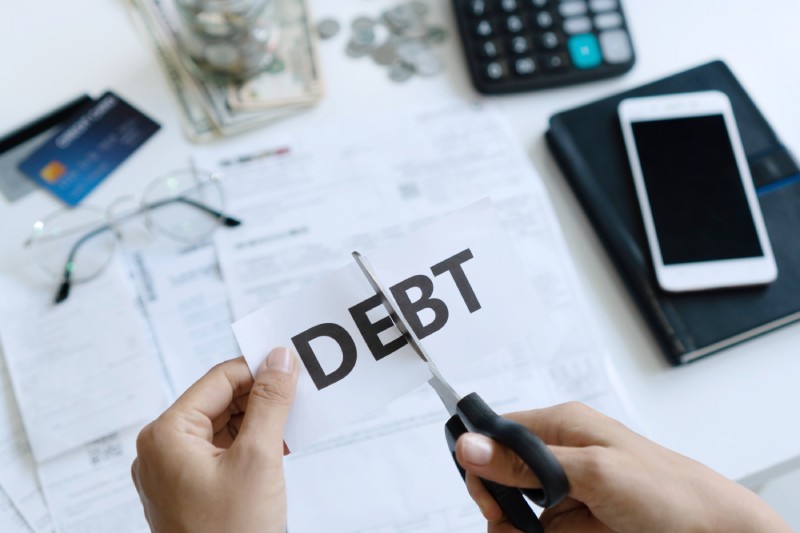Introduction
Credit cards have become part of our modern lifestyle. We can’t live without it. Can you travel around as a working adult without a credit card?
However, credit card debt can be a significant source of financial stress, but with the right approach, you can take control of your finances and pave the way to a debt-free future.
In this blog post, we'll explore three effective strategies that can help you tackle and eliminate credit card debt, empowering you to achieve greater financial stability and peace of mind.
1. Create a Budget and Focus Only on One Card
One of the fundamental steps towards eliminating credit card debt is establishing a comprehensive budget. A budget allows you to track your income, expenses, and debt repayment obligations, providing clarity on your financial situation and identifying areas where you can cut back on spending.
Track Your Expense
Begin by tracking all of your expenses, including essentials such as housing, groceries, and transportation, as well as discretionary spending on items like dining out and entertainment. Use tools such as budgeting apps or spreadsheets to categorize your expenses and gain insights into your spending habits.
Set Realistic Goals
Determine how much you can allocate towards debt repayment each month while still meeting your other financial obligations. Set realistic goals based on your income and expenses, aiming to pay off your credit card debt within a specific timeframe. Break down your total debt into manageable monthly payments, ensuring that you stay on track towards your goal.
Cut Unnecessary Expenses
Review your budget to identify areas where you can reduce discretionary spending. Consider making sacrifices in non-essential categories to free up additional funds for debt repayment. This may involve cutting back on dining out, subscription services, or luxury purchases until your debt is under control.
Focus Only On One Card
Credit cards can come in handy when traveling and making online purchases. There are benefits like exchanging points for air miles, hotel stay and airport transfers. Do your research and select only one card with the most benefits that best caters to your needs and lifestyle. Owning only one card makes you focus on your spending, in line with your budget and remember to pay it off every month.
2.Utilize Debt Repayment Strategies to Consolidate your Debt

Once you have a budget in place, it's time to implement debt repayment strategies that can help you accelerate your progress towards becoming debt-free.
Snowball Method
The snowball method involves prioritizing your debts based on their balance, starting with the smallest debt first. Make minimum payments on all of your debts while allocating extra funds towards paying off the smallest debt. Once the smallest debt is paid off, roll the amount you were paying towards it into the next smallest debt, and so on. This approach provides a sense of accomplishment as you quickly eliminate smaller debts, motivating you to continue towards larger ones.
Avalanche Method
The avalanche method focuses on tackling debts with the highest interest rates first. Make minimum payments on all of your debts while directing any extra funds towards the debt with the highest interest rate. Once that debt is paid off, move on to the next highest interest rate debt. This method saves you money on interest over time and can help you pay off your debts more quickly.
Debt Consolidation
Consider consolidating your credit card debts into a single loan with a lower interest rate. Debt consolidation can simplify your finances by combining multiple debts into one monthly payment, potentially reducing your overall interest costs and helping you pay off your debt faster. However, be sure to carefully review the terms and fees associated with the consolidation loan to ensure that it's the right choice for your situation.
Balance Transfer
Utilizing a balance transfer facility like 6 months which typically charges a small admin fee will help roll over the outstanding balance to another card. You reduce your monthly repayment and reduce the interest charges on your outstanding balance. The trick is to pay off the remaining balance before the due date to avoid higher interest and to buy time to get extra income to pay off as much as possible while watching and limiting your spending based on your budget.
3. Increase Your Income and Leave the World of Credit Card

In addition to managing your expenses and implementing debt repayment strategies, finding ways to increase your income can provide a significant boost to your efforts to eliminate credit card debt.
Explore Additional Income Sources
Look for opportunities to supplement your primary income through side hustles, freelance work, or part-time jobs. Consider leveraging your skills and interests to generate extra income, whether it's through online freelancing platforms, selling handmade goods, or offering tutoring services. Even a modest increase in income can make a meaningful difference in your ability to pay off debt more quickly.
Seek Financial Assistance
If you're struggling to make ends meet or facing overwhelming debt, don't hesitate to seek assistance from reputable sources. Nonprofit credit counseling agencies can provide free or low-cost financial counseling and debt management plans to help you get back on track. Additionally, reaching out to your creditors to discuss hardship programs or debt settlement options may offer temporary relief and facilitate more manageable repayment terms.
Stay Committed and Stay Positive
Eliminating credit card debt requires discipline, perseverance, and a positive mindset. Stay committed to your budget and debt repayment plan, even when faced with challenges or setbacks along the way. Celebrate small victories and milestones as you progress towards your goal, and remind yourself of the financial freedom that awaits once you're debt-free.
Have Only One Card
Have only one card which is a debit card which is linked to your savings account where you only spend what you can afford to eliminate any more credit card debt accumulation. Or if you really need, have only one credit card for emergency purposes and for easy tracking of your spending.
Conclusion
Getting out of credit card debt is achievable with careful planning, disciplined budgeting, and proactive debt repayment strategies. By creating a budget, utilizing debt repayment methods, increasing your income, and seeking support when needed, you can take control of your finances and work towards a future free from the burden of debt. Remember, every step you take towards debt elimination brings you closer to financial freedom and peace of mind.













